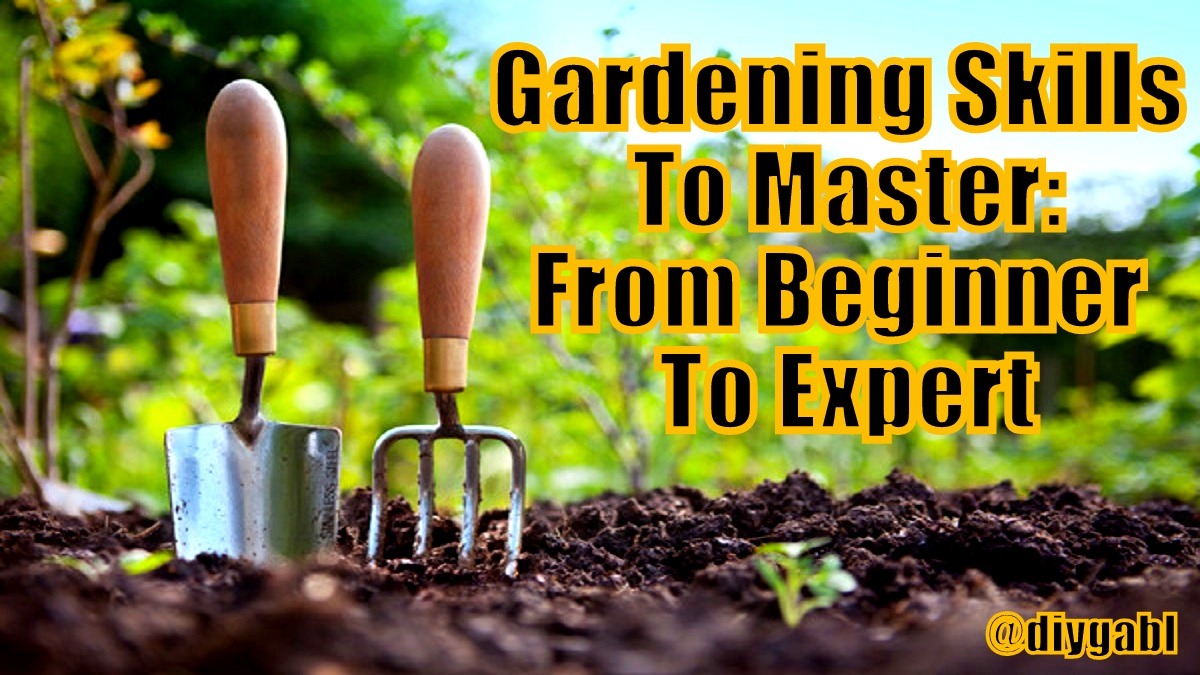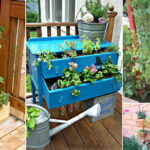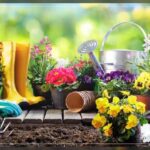Gardening is often romanticized as an idyllic pastime, where dirt-streaked hands, freshly blossomed flowers, and flourishing greenery converge to create a tableau of tranquility. Yet, a simmering question lurks beneath the surface of this picturesque imagery: does gardening truly require skill? For beginners, the prospect of engaging with the soil can be both exhilarating and intimidating. This discourse aims to unravel the complexities surrounding the skill set necessary for successful gardening, inviting beginners to contemplate their innate abilities and the potential for growth.
In exploring the notion of gardening as a skill-based endeavor, it is paramount to delineate what is meant by ‘skill.’ Skill can be defined as the capacity to execute a task effectively and efficiently, often acquired through learning, practice, and experience. With this foundation laid, it becomes essential to analyze the diverse dimensions of gardening that contribute to its perceived complexity.
One of the most pertinent aspects of gardening lies within the realm of knowledge—understanding both the botanical requirements of plants and the environmental conditions that influence their growth.
Soil Composition and Ecosystem Awareness
The ground upon which one plants is not merely dirt; rather, it is a complex amalgamation of minerals, organic matter, and microorganisms. Knowledge of soil composition is crucial for any aspiring gardener. Different plants have varying preferences regarding pH levels, drainage capabilities, and nutrient availability. For instance, root vegetables such as carrots require sandy soil for optimal development, while many flowering plants thrive in loamy environments.
Additionally, a gardener must cultivate awareness of their local ecosystem. This includes understanding climate conditions, seasonal variations, and the local flora and fauna. Engaging with these external factors not only enriches the gardening experience but is instrumental in making informed choices regarding plant selection and care.
Pest Management and Plant Health
The question of whether gardening requires skill becomes increasingly nuanced when one considers pest management and plant health. Novice gardeners may be unprepared for the array of challenges that pests and diseases can pose to their budding endeavors. Differentiating between beneficial insects, such as ladybugs, and destructive pests, like aphids, necessitates an informed eye and an understanding of entomology.
Moreover, recognizing the signs of plant distress, whether from nutrient deficiencies or disease, requires a certain degree of skill and training. Effective gardening does not simply involve planting seeds and waiting; it demands an ongoing commitment to observation, analysis, and intervention. The ability to troubleshoot problems as they arise is a skill that can be cultivated over time, but it is not innate. Therefore, the question remains: does the necessity for such knowledge imbue gardening with an inherently skillful dimension?
Cultivation Techniques and Practical Know-How
At its core, gardening encompasses a variety of techniques that can be categorized as practical skills. These range from seed sowing and transplanting to pruning and watering. Each activity involves specific methodologies that must be learned and practiced to achieve successful outcomes.
For instance, understanding the intricacies of proper watering techniques is pivotal, as both overwatering and underwatering can wreak havoc on plant life. Similarly, knowing the appropriate times to prune can influence the overall health and productivity of perennial plants.
It is essential to recognize that skill acquisition in gardening is not exclusive to seasoned horticulturists; rather, it is accessible to beginners who approach the practice with curiosity and a willingness to learn. By immersing oneself in instructional resources—be they books, online guides, or community workshops—novices can cultivate a repertoire of skills that empower them to engage meaningfully with their gardens.
Emotional Intelligence and Intuitive Gardening
However, skill in gardening transcends mere technicality; it also encapsulates emotional intelligence and intuition. The relationship between gardener and garden is deeply intertwined, fostering a connection that is as much emotional as it is physical. A gardener must develop an intuitive relationship with the plants they tend, understanding their rhythms, needs, and idiosyncrasies. This intimate knowledge often grows over time and requires an empathetic approach.
Intuitive gardening may manifest in the ability to recognize when a plant is thriving or struggling, even before overt signs of distress appear. This heightened awareness is a form of skill that can be cultivated through experience, patience, and continued engagement with the garden space. For instance, beginners who attentively observe their plants can begin to recognize the subtle shifts in color or texture that may signal a need for intervention.
The Cultivation of Resilience
Embracing the challenges inherent in gardening also fosters resilience—another skill integral to the gardening endeavor. Resilience is cultivated through the acceptance of failure, as it is inevitable that not every seed will germinate, nor will every plant flourish. The beginner gardener must come to terms with these setbacks and reframe them as opportunities for growth.
Moreover, resilience encourages a mindset of experimentation. Beginners who adopt a growth-oriented approach may try various techniques, plant combinations, or styles of gardening, allowing for a richer and more rewarding gardening experience. The capacity to pivot and adapt in response to the unique challenges of a given garden is emblematic of a skilled gardener, regardless of their years of experience.
Engagement with Community and Knowledge Exchange
Finally, the communal aspect of gardening serves to reinforce the notion that skill can be collectively nurtured and shared. Community gardens, horticultural clubs, and local gardening workshops provide platforms for knowledge exchange, connecting novices with experienced gardeners. This sense of community can significantly enhance skill development by fostering a culture of mentorship and collaboration.
In conclusion, the question “Does gardening require skill?” is multifaceted and subjective. While technical knowledge and practical techniques constitute a significant part of the gardening skill set, emotional intelligence, resilience, and community engagement round out the comprehensive landscape of expertise required. For beginners, the journey begins with acknowledging the learning curve and embracing the opportunity for growth. So, the challenge is laid forth: will you step into the soil, embrace the uncertainties, and embark on the transformative journey that is gardening? The answer lies within your willingness to cultivate not just plants, but your own evolving capacities as a gardener.









Leave a Comment